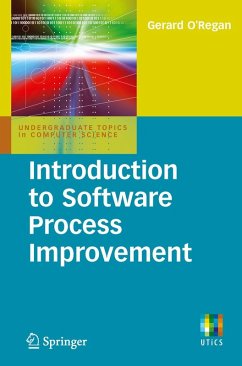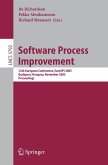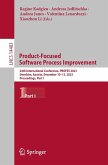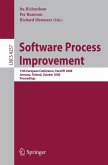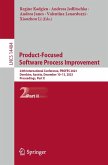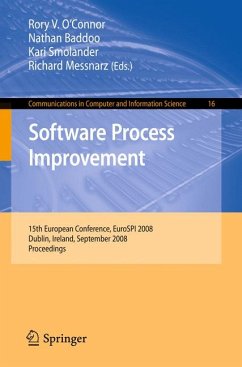Introduction to Software Process Improvement is a systematic textbook and guide to the various steps in setting up a CMMI improvement initiative. Students and independent readers will learn the project management practices necessary to deliver high-quality software solutions to the customer on time and on budget. The text also highlights how software process improvement can achieve specific business goals to provide a tangible return on investment.
Topics and features:
- Supplies review questions, summaries and key topics for each chapter, as well as a glossary of acronyms used in the book
- Describes the CMMI model thoroughly, detailing the five maturity levels and their constituent process areas
- Provides a broad overview of software engineering, including a discussion of requirements elicitation, software design, implementation, testing and maintenance
- Reviews the activities and teams required to set up a CMMI improvement initiative, describing the process as a continuous improvement cycle
- Examines in detail the implementation of CMMI in a typical organization at each of the maturity levels
- Investigates the various tools that support organizations in improving their software engineering maturity
- Discusses the SCAMPI appraisal methodology
This clearly organized and easy-to-read textbook is a must-have for all students of computer science interested in learning about software process improvement and its capacity to assist software companies in achieving high-quality and reliable software on time and on budget. The text will also be of interest to software engineers, quality professionals and software managers involved in software process improvement programs, in addition to the motivated general reader.
Dr. Gerard O'Regan is a lecturer at Waterford Institute of Technology, Ireland, and a visiting lecturer at Nanjing University of Information Science and Technology, China. He is author of the successful Springer titles A Brief History of Computing, Mathematical Approaches to Software Quality and A Practical Approach to Software Quality.
Dieser Download kann aus rechtlichen Gründen nur mit Rechnungsadresse in A, B, BG, CY, CZ, D, DK, EW, E, FIN, F, GR, HR, H, IRL, I, LT, L, LR, M, NL, PL, P, R, S, SLO, SK ausgeliefert werden.
"O'Regan ... has written a comprehensive book aimed at undergraduate students and anyone who wishes to approach software process improvement for the first time. ... The written material is accurate and well explained. ... engaging introduction to the world of project-based software process improvement. Summing Up: Recommended. Upper-division undergraduates and professionals." (L. Benedicenti, Choice, Vol. 49 (8), April, 2012)
"This book is designed as a textbook for undergraduate students. ... The book explains software process improvement in a self-contained way. ... O'Regan's pragmatic approach, along with his many intelligent side remarks that match my personal experiences in software engineering, are further highlights of the book. ... a very nice introduction and reference for practitioners in the field." (Markus Wolf, ACM Computing Reviews, June, 2011)

